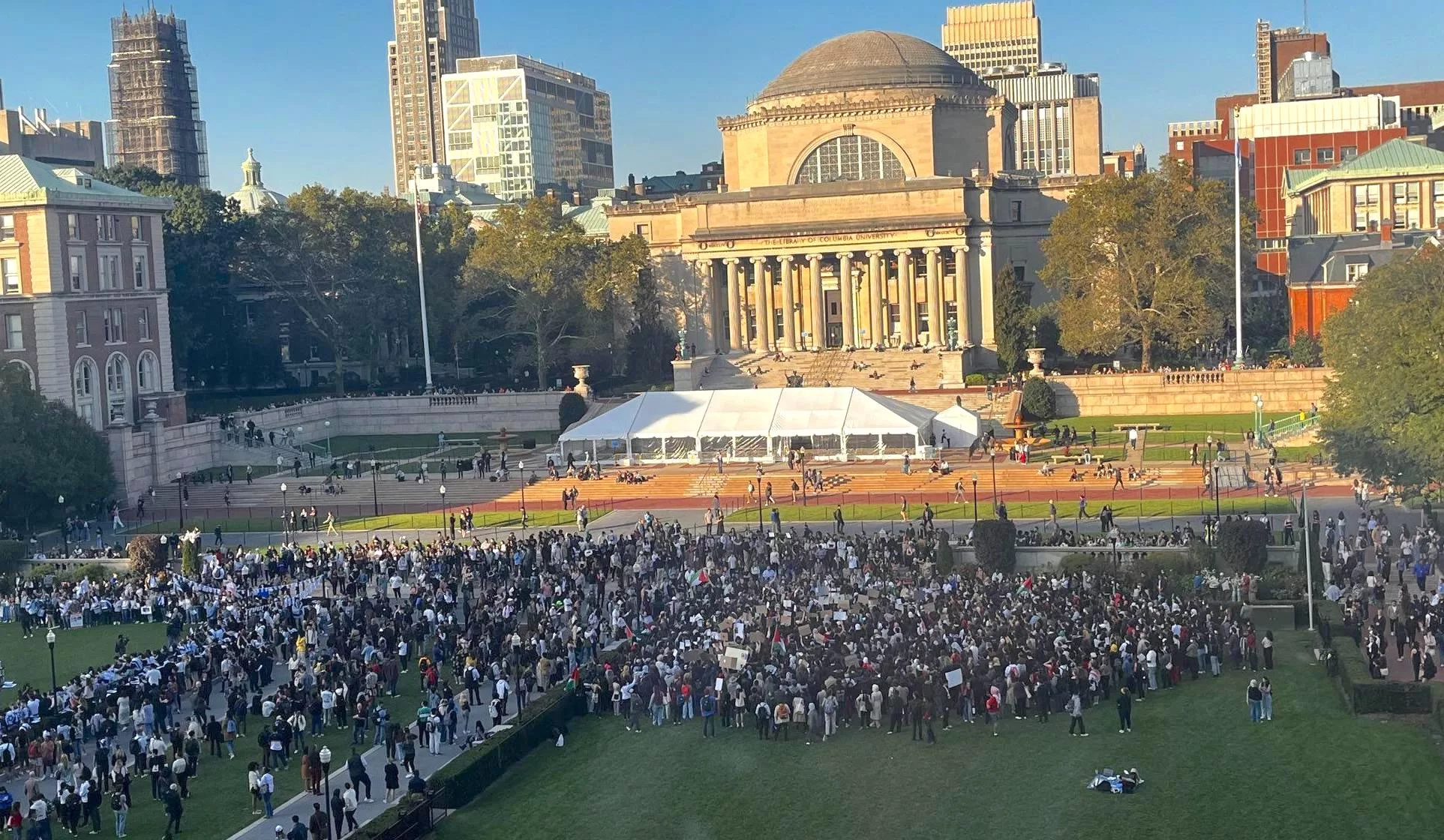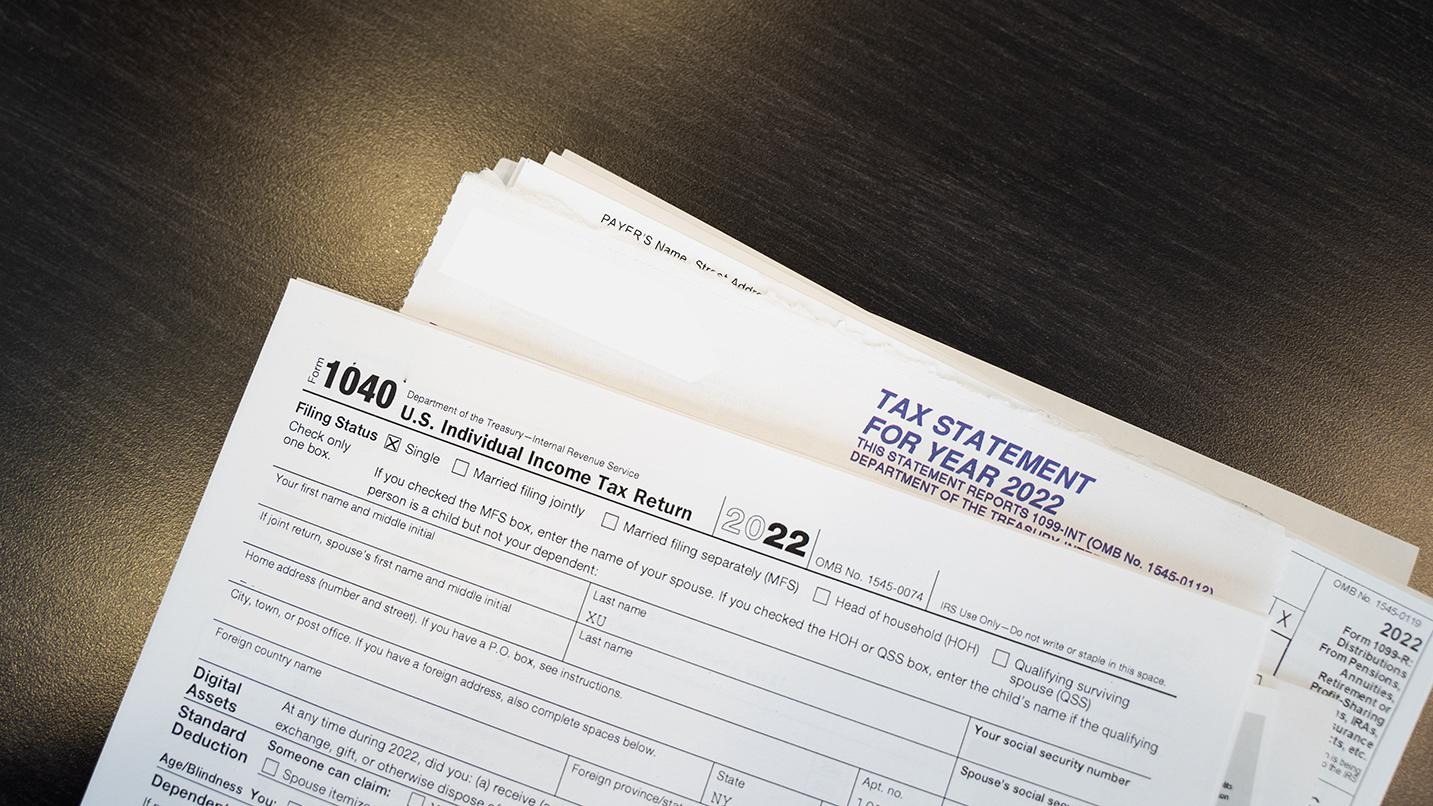A judge in the United States District Court Southern District of New York, Jesse M. Furman has blocked Mahmoud Khalil’s removal from the U.S. pending further action on a habeas petition filed by Khalil’s attorney, Amy Greer, in a new update by POLITICO’s Josh Gerstein.
The arrest and potential deportation of Khalil, a green card holder in violation of his first amendment rights, has sent shock ripples through the U.S. and international communities.
President Donald Trump took to Truth Social to applaud the arrest of 30-year-old Columbia University graduate Mahmoud Khalil, calling him a “Radical Foreign Pro-Hamas Student” and marking his arrest as the beginning of what will become further deportations.
“This is the first arrest of many to come,” Trump continued on Truth Social Monday afternoon. “We know there are more students at Columbia and other universities across the country who have engaged in pro-terrorist, anti-Semitic, anti-American activity, and the Trump Administration will not tolerate it.”
Khalil, whose U.S. citizen wife is eight months pregnant, faces deportation to his country of citizenship, Algeria, after ICE arrested him in his student dormitory on Saturday. Initially detained at a facility in Elizabeth, New Jersey, he has been transferred to the Jena/LaSalle Detention Facility in Louisiana, as confirmed by the ICE online detainee locator.
The habeas petition filed by his lawyer is a legal request filed by an individual who is being detained or imprisoned, asking a court to determine whether their detention is lawful. It is typically used when a person believes they are being held in violation of their constitutional rights, and is commonly filed in cases involving wrongful convictions, unconstitutional imprisonment, or violations of due process.
Khalil’s attorney, Amy Greer, told AP News that ICE initially claimed they were revoking Khalil’s student visa. However, after being informed that Khalil was a legal permanent resident, the agents instead declared his green card was being revoked.
His case has drawn widespread attention, particularly because of his involvement in last year’s pro-Palestine student protests at Columbia University. He had served as a mediator between student protesters and the university administration during demonstrations that included a tent encampment and the temporary occupation of an academic building.
Though Khalil was not part of the building occupation, his role in negotiations made him a prominent figure in the movement and various organizations often criticized him for his outspoken views. The arrest has ignited a national debate over free speech, immigration policy, and political activism on college campuses.
Also Read: Trump’s New Executive Order Could Silence Foreign Critics, Not Just Pro-Palestine Protesters
Speaking on Truth Social, President Trump said those like Khalil were “terrorist sympathizers” and “paid agitators.” He vowed that his administration would “find, apprehend, and deport” them.
“If you support terrorism, including the slaughtering of innocent men, women, and children, your presence is contrary to our national and foreign policy interests, and you are not welcome here,” he said. “We expect every one of America’s Colleges and Universities to comply.”
On Trump’s first day in office, he issued an executive order titled “Protecting the United States from foreign terrorists and other national security and public safety threats.” The new directive is considered an evolution of the ‘Muslim ban’ he implemented after assuming the presidency in 2016, which initially banned people from seven Muslim-majority countries from entering the United States.
Critics of Khalil’s arrest argue that his detention represents a dangerous escalation of political targeting. A petition demanding his release has already garnered nearly 800,000 signatures. Trump ran a presidential campaign with promises to mass deport undocumented people from the U.S., but Khalil’s arrest shows that those with legal documentation who the administration deems worthy of deportation are not spared too.
Rep. Alexandria Ocasio-Cortez warned: “If the federal government can disappear a legal U.S. permanent resident without reason or warrant, then they can disappear U.S. citizens too. Anyone – left, right, or center – who has highlighted the importance of constitutional rights + free speech should be sounding the alarm now.”
The arrest of Khalil appears to be based on the administration’s interpretation of a provision in the Immigration and Nationality Act, which states that an “alien whose presence or activities in the United States the Secretary of State has reasonable ground to believe would have potentially serious adverse foreign policy consequences for the United States is deportable.”
Secretary of State Marco Rubio had similar sentiments to President Trump and linked Khalil’s arrest to the administration’s broader campaign to revoke visas and green cards of individuals perceived as supporting Hamas, which the U.S. has designated as a terrorist organization.
“We will be revoking the visas and/or green cards of Hamas supporters in America so they can be deported,” Rubio wrote on the social media platform, X, as he shared an AP News article about Mahmoud Khalil.
With the Trump administration’s intensified efforts to crack down on pro-Palestinian student activism, Khalil’s arrest is the first publicly known deportation effort related to the pro-Palestine student protests.
On Monday, the federal immigration authorities had attempted to arrest a second student at Columbia University over the weekend: “Federal immigration authorities also visited a second international student at Columbia over the weekend and attempted to take her into custody but were prevented from entering the apartment, according to a union representing the student,” AP News reported. “The woman has not been identified, and it’s not clear what grounds ICE had for the visit.”
What’s next for Khalil and what are the legal and human rights concerns?
As Khalil remains in ICE detention, legal experts question the basis of his arrest. His defense team has yet to release a formal statement, though human rights advocates continue to push for his release. Emergency mobilization and rallies were being held Monday evening in several locations in Manhattan to demand Khalil’s release.
The outcome of his case could set a precedent for how immigration law is used — or misused — against political activists in the U.S.
Silky Shah, executive director of Detention Watch Network, condemned the arrest, calling it “a clear example of the rise of authoritarianism.” She also pointed out the documented history of abuse at the Jena detention center, where Khalil is currently held.
“This is a feature, not a flaw of the detention system: ICE operates within a culture of secrecy, obscuring abuses and purposefully transferring people from detention centers to detention centers to disconnect them from their loved ones and community support,” Shah added.
Prominent New York politicians, including Sen. Jessica Ramos, New York Attorney General Letitia James, and Rep. Alexandria Ocasio-Cortez, have also voiced their opposition about Khalil’s arrest.
Ramos said of Khalil’s detention: “The Trump administration offered no serious legal justification for Khalil’s detention, instead citing a Trump executive order. We know from history that abuse of detention powers are a hallmark of authoritarian regimes.”
New York City Comptroller Brad Lander, who is running for mayor ahead of the November 2025 election, described the arrest as “an unconstitutional and egregious violation of the First Amendment,” stating that while he personally disagreed with the protesters’ views, deporting people for their speech was a dangerous precedent.
Lauren Bohn, a journalist and friend of Khalil, told Documented that Khalil is one of the most kind and gentle souls she’s ever met. “He shouldn’t have to be the perfect human, the kind and gentle soul he is for us to be enraged about what is happening,” Bohn said. “But it just so happens, he is very kind and gentle and just a lovely, beautiful soul.”
She met Khalil about 12 years ago when she spent a summer in Beirut reporting on the Syrian refugee crisis when Khalil was about 18 years old. At the time, Khalil was doing some work for a refugee aid organization called Jusoor and he had recently fled Syria by himself and was a young refugee himself. “Even at 18 and a young refugee, he was dedicating himself to uplifting his fellow Syrian refugees and to really find opportunities for them to work in Lebanon,” Bohn said. She remembered him telling her a few years ago, while they were met during Rahmadan in Istanbul, that pursuing a degree at Columbia would “help him serve many others who didn’t and won’t get a chance.”
“What we’re seeing through Mahmoud’s disappearance is an autocratic consolidation of power against political opponents, and really we need to be paying attention, because what we’re seeing here is the destruction of American civil liberties and freedoms, and it’s despicable that’s that it’s being carried out under the guise of defending against anti-semitism and Jewish safety,” Bohn told Documented. “As an American, as a human, I’m reminding myself and others that, you know, we need to lock in, we need to stay focused, because this is only the beginning. We’d be foolish, and we’d be poor students of history to think that, you know, the administration is going to stop with Palestinians or Arabs or Muslims, or, you know, undocumented people or even trans folks.”
What is Columbia University’s response?
Columbia University has remained cautious in its public statements. When Documented contacted Samantha A. Slater, executive director of Media Relations at Columbia, she referred to a response the school published on Sunday: “There have been reports of ICE around campus. Columbia has and will continue to follow the law. Consistent with our longstanding practice and the practice of cities and institutions throughout the country, law enforcement must have a judicial warrant to enter non-public University areas, including University buildings. Columbia is committed to complying with all legal obligations and supporting our student body and campus community.”
Meanwhile, the university is reportedly conducting internal investigations into students and faculty involved in pro-Palestine activism. As Drop Site recently reported, a newly established administrative office in Columbia University called the Office of Institutional Equity (OIE), has been tasked with reviewing cases of alleged “discriminatory harassment” related to the protests. They note that the office has the authority to issue suspensions, revoke housing, and even rescind degrees in cases where students are found in violation of school policies.
Khalil’s arrest comes following news that the Trump administration on Friday announced the cancellation of $400 million in federal contracts and grants to Columbia University, citing concerns over “anti-Semitic” harassment on campus.














